#algerian poetry
Text
Contemplation glows
like sunrise.
— Habiba Muhammadi, The Poetry of Arab Women: A Contemporary Anthology, transl by Ibrahim Muhawi, (2001)
12 notes
·
View notes
Text
i wanted to post this for rosh hashanah but i forgot and i'm lazy. however, i hope that my favorite fictional "old jewish men" had a nice new year 🍯🍎🍏. (they are all canonically jewish, trust me this is 100% real haha don't look them up to verify, just believe me.)


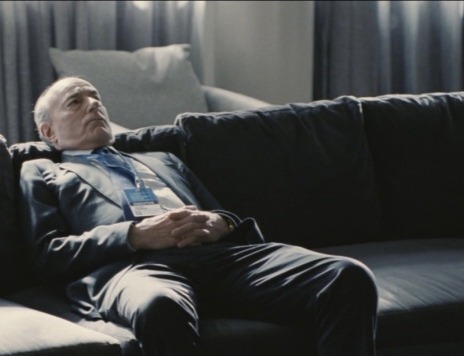

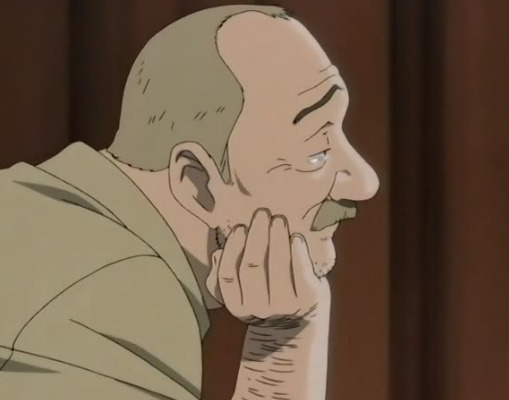
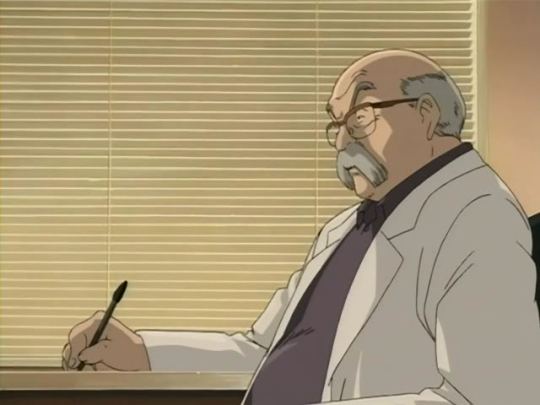
also i can only remember these ones... are they my six (seven if you count runge/lunge from monster but he's not celebrating rosh hashanah, or anything, so i don't put him on this post) OJMs characters i can think of ? probably not but i've really searched a lot inside my brain and i can't really think of others... maybe i'll do a second post because i know i forgot some..
#john turturro is algerian jewish btw (don't look up the early life section of his wikipedia page just choose to believe me without question)#irving and burt are actually sephardic/ashkenaze solidarity#frank vernon is literally played by an old jewish man he's the most legit of them i'm crying#also mr rosso monster and dr julius r/leichwein monster jewish because i said so (i want them as paternal figures)#i should add runge from monster too but that man is jewish but the most secular man you could find. like SECULAR.#also kinda crackship but i kinda ship leichwein and rosso because it would be “old jewish man yaoi” and i love both terms so much#like whoever coined the terms old man/woman yaoi/yuri did an incredible association of words to me. modern times poetry.#also milan from that one episode of monster but i'm still grieving him. (czech jewish trust me (with some romani vibes if you ask me) !!)#irving bailiff#burt goodman#frank vernon#mr rosso monster#julius reichwein#julius leichwein#severance#succession#naoki urasawa's monster#monster#john turturro#christopher walken#peter friedman#edit before the posting but i already wrote all the tags :#oliver putnam#martin short#only murders in the building#omitb
7 notes
·
View notes
Text
tips for writing arab characters
writer here!! im a middle eastern writer whos noticed that theres a VERY significant lack of info on how to write arabs, so im here to help !! (however, keep in mind that im specifically gulf arab and may not be able to provide as much info on levant arabs or north african arabs. if there are any on here, feel free to reblog w more info !! )
dont get arabs mixed up w muslims. yes, a large portion of the arab population are muslim, but youd be surprised at the number of non-muslim arabs that exist. if you wanna write abt a muslim character, a post i made that might help is here
list of arab countries, with the adjective:
algeria — algerian
bahrain — bahraini
the comoros islands — comorans
djibouti — djiboutian
egypt — egyptian
iraq — iraqi
jordan — jordanian
kuwait — kuwaiti
lebanon — lebanese
libya — libyan
morocco — moroccan
mauritania — mauritanian
oman — omani
palestine — palestinian
qatar — qatari
kingdom of saudi arabia (ksa) — saudi
somalia — somali
sudan — sudanese
syria — syrian
tunisia — tunisian
united arab emirates (uae) — emirati
yemen — yemeni
dialects/language:
dialects greatly differ—the egyptian dialect is the most common, followed closely by the levantine dialect
classic arabic is called fusha (fuss-ha), used in things like official documents, media, education. every arab knows it but its not used in day to day language except in media (all dialects basically come from fusha, but with slight changes)
'p' and 'g' (as in 'gurgle' or 'goal') dont exist in the arabic alphabet, theyre replaced with 'b' and 'j'
depending on where theyre from, they may also learn a third language besides arabic and english (e.g. moroccans know french, a berber arab may know berber)
appearance:
arabs look different based on where theyre from. if theyre from the arabian peninsula, they have thick curly dark hair, tanned skin, and dark eyes. levant arabs are lighter skinned, and green/blue eyes are more common with them
adding on to previous point, arabs have a variety of skin tones, even if theyre siblings. using a real example, me and my older brother respectively look white passing and afro hispanic
dark irises are considered better looking than lighter colored eyes. eyes are usually thick-lashed, with big round slightly upturned eyes
big noses are common, along with full lips (and hereditary dark circles for those with more tanned skin)
high cheekbones and well structured faces are also prevalent
culture:
varies depending on location
influenced by indian culture, IS NOT INTERCHANGEABLE WITH INDIAN CULTURE. that was aladdins mistake
poetry is so common, especially with romantic themes
songs also have romantic themes
youd be surprised at how romantic arabs are
dances vary extremely, from dabke (palestinean dance done in groups, consisting largely of leg/foot movements) to yola (emirati dance with battle origins, done using canes or fake guns) i recommend watching videos (tiktok has a lot of videos esp of dabke)
women also dance but you wont find a lot of videos of it bc its inappropriate
etiquette:
things such as giving someone your back, or facing the bottom of your feet towards someone are considered rude
pda is also taboo (even with straight couples or even sometimes married couples)
cheek kisses are a common way of greeting, but not between genders
in some gulf countries, men greet each other with a nose kiss (not in an intimate way) just stubbing their noses against each other
genders do not mix at all. schools tend to divide girls and boys into two sections starting at a certain age (around age 10/11), and mosques are split into the mens side (usually larger than womens bc men use the mosque more)
having an extramarital relationship is very very taboo (even w hetero relationships) but it still happens. a lot.
family dynamics (note that this is obviously a spectrum. this is the general dynamic, but obv it ranges from family to family):
NOT ALL OF US HAVE ABUSIVE PARENTS. sure theyll spank you if you skip school, but thats not necessarily abusive. its more strict, and youd be surprised at the amount of freedom some parents give their kids
yes, arranged marriages do happen. no, they arent necessarily forced, it just means that your parents had a hand in deciding who youll marry. yes, marrying cousins is a thing, but its much less prevalent now (also, ew)
fathers care. a lot. they dont show it, but they do. they also tend to joke around a lot
mothers tend to be the rule enforcers, and by far our moms are our best friends. we tell them EVERYTHING i swear
aunties gossip a lot
uncles are a safety hazard
its not uncommon to have a large number of cousins (mainly bc arabs tend to have a lot of kids)
the average number of children 3 per woman, but from personal experience the older the generation the more kids (e.g. my great-grandmother had a whopping thirteen kids, my grandmother had seven, my mom has six, but a couple of my aunts only have one or two)
social class/work environment/school environment:
schools tend to be either arab curriculums but there is a high density of american/british curriculum schools
boys and girls tend to be separated in school around age nine/ten but some schools will be mixed genders up till graduation
yes, women work, tho admittedly some of them tend to have careers more than jobs (e.g. photographer, writer, etc while the men handle engineering, economics, etc)
no, not all of us are rich. in fact, countries like jordan, egypt, tunisia, morocco, and yemen (and infamously palestine) are acc struggling w poverty. its mainly just gulf arabs who are rich
furthermore, gulf arabs may be generally rich but a large chunk of them have the same lifestyle as an upper-middle class family in the usa. rich but not too rich. dont be fooled by the videos of guys wearing kandoras and driving lambos
speaking of kandoras...
outfits (keep in mind that spelling may vary since its all transliteration, and pronunciation may vary depending on region) (also keep in mind that even if we still live in the middle east, WE CAN WEAR JEANS AND HOODIES AND BAND SHIRTS. just, usually cover up more in public):
abaya: loose overgarment worn by women
jilbab/chandoor: also worn by women, type of long dress or tunic
the white robe all of yall know is known as a thobe, dishdasha, or kandora
the colored headscarf worn by men is known as a ghuthrain in the gulf, kevfiah in the levant. its kept in place with a black cord called a aghal, and under it they wear a skullcap called a thagiyah
those are the most common ones, however if youd like to get a lil more specific on clothong, the ultimate guide to arab clothing is here (it also has specified clothing for individual countries)
hope this helps, feel free to reblog w more info if you have any !!
#writing tips#writing arabs#arab#writer sources#writing help#writers on tumblr#writeblr#writing advice
99 notes
·
View notes
Text
Occupying an interstitial position between different continents [...], [t]his position as a space-between-spaces makes the Maghrib a hub [...]. [I]nvestigate the location of the Maghrib beyond the dominant binary of Arab vs. Francophone, the much-critiqued idea of the Sahara as a barrier, or the assumption of the Maghrib as an insular space. [...] [T]he Maghrib was a revolutionary concept [...]. [T]he idea of the Maghrib was rooted in anticolonial thought, one which the machinations of colonial power and exigencies of postcolonial state building and border disagreements have stalled ever since. [...]
Tamazgha -- as indigenous Amazigh activists have chosen to call North Africa since the 1990s -- was populated by Amazigh populations of Christian and Jewish faiths. [...] These dynamics, however, neither eliminated Amazigh language and culture nor drove out the sizable Jewish populations that shared this Judeo-Islamic space. Rather, it was nineteenth- and twentieth-century European colonialism [...]. Governments have either entirely silenced Amazigh language and culture, as was the case in Libya and Tunisia, or actively repressed them, as was the case in Algeria and Morocco.
Nevertheless, a vibrant Amazigh Cultural Movement (ACM) has struggled to re-Amazighize the Maghrib by inventing traditions and refiguring toponymies.
---
Tamazgha, which this ACM defines as extending from the Siwa Oasis in Egypt to the Canary Islands in the Atlantic Ocean, has replaced both “North Africa” and “the Maghrib” in activist nomenclature.
Activists have thus reinscribed this consciousness of “al-dath al-amazighiyya” (the Amazigh self/subjectivity) in public spaces as well as in the markers of Maghribi geographies.
Gone are the days when Amazigh people could be simply erased from the cartography of their native lands. Tamazight has acquired a constitutional status in Morocco and an official one in Algeria. Its speakers are working to have it recognized in Libya and Tunisia. [...]
The ubiquity of the Tifinagh alphabet (the Tamazight script) and the proliferation of Tamazight literary and audiovisual production has created a new cultural reality. Across short stories, novels, film, and music, Amazigh creators are reinventing the Maghrib and reconciling it with its indigenous past. [...]
---
The rise of taskla Tamazight (Amazigh literature) and cultural production is the single most transformative literary development in the last thirty years of the Tamazghan intellectual movement. [...] Amazigh cultural producers are not just rehabilitating their mother tongue. They also rehabilitate an erased geography, a sense of indigeneity, and the relation-ship between space and people.
Shamal Iiriqiyya (North Africa in Arabic), Afrique du Nord (North Africa in French), or the Maghrib, are geographical and political appellations superimposed on the region [...]. Alternatively, Tamazgha is a politically conscious name that is from the same root as Tamazight.
Tamazgha means the land of the indigenous Imazighen, which reconfigures space, revisits history, and questions accepted toponymies. [...]
---
The plurality of the Maghrib and its multilingualism will undoubtably acquire a different meaning when we read them from the perspective of indigenous authors in Amazigh languages. Immersion in the discourses of the ACM reveals [...] foundational ideas like le Maghrib pluriel (the plural Maghrib) [...]. These organizations seeded and then advocated the idea of “al-wahda fi al-tannawwu‘” (unity in diversity). [...]
Whether it is Algerian Kabyle musician Idir, the Moroccan band Izenzaren (Sun Rays), or Malian Tuareg band Tinariwin (Deserts), Amazigh melodies and poetry travel, cross boundaries, and reconnect Imazighen across the globe.
This “traveling Tamazgha” complicates the Maghrib’s location and invites a constant mapping and remapping of the space and its aesthetics.
---
Text by: Brahim El Guabli. ”Where is the Maghreb? Theorizing a Liminal Space.” Arab Studies Journal Vol. XXIX, No. 2. Fall 2021. [Bold emphasis and some paragraph breaks/contractions added by me.]
33 notes
·
View notes
Note
hi I love your art! As an algerian, I would love to see some algeria headcanons if it's fine with you! Have a nice day! :D
Sometimes publishes collections of his poetry under a few pseudonyms- Morocco found one of his pseudonyms and left a poor review on his book, which he's still holding a grudge for.
Lebanon likes to joke about Algeria being surrounded by "babes" because West Africa is dominated by largely women nations. He just gives Lebanon a look in response.
Has a major sweet tooth...
He's friends with Cuba, Vietnam, Indonesia! Let's goooo NAM nations 💪💪💪 On a similar note, he's friends with of former French colonies and territories!
#ask#hetalia#anonymous#hetalia ocs#hetalia headcanons#hws algeria#hws morocco#and thank you!! have a nice day too :3cc
23 notes
·
View notes
Note
Tell me more about the North African music of protest, because that sounds like a class I would have loved (not speaking Arabic notwithstanding).
OKAY!!!!
So this class is about music and people of North Africa and it is probably the coolest class I've ever taken. It's cross listed in Folk Studies, Anthropology, and African American Studies bc it's a one off and the university couldn't decide where to put it ig??
So the first thing to understand is that defining North Africa is tricky. Generally accepted definitions include Morocco, Algeria, Tunisia, Libya, Western Sahara, and sometimes Egypt. This area of the world could conceivably fit in many different geographical areas: the Middle East (also tricky to define), the Arab World (different from the Middle East!!), Mediterranean countries, Africa. In Arabic there is a distinction between the Mashriq/مشرق and the Maghreb/مغرب, meaning the East (i.e. the Arabian Peninsula) and the West (i.e. North Africa) and Egypt sort of floats between the two depending on what political purpose the definitions are serving at that time. The Maghreb/North Africa is often called Jazirat al-Maghreb (the Island of the Maghreb) in Arabic because it is culturally and geographically distinct from the other Mediterranean states to the north, the Saharan and sub-Saharan African states to the south, and the Mashriq to the east.
So! To get into protest music! After North African states fought for and won independence from their European colonizers (notably the British in Egypt and the French in Tunisia, Algeria, and Morocco) they had to decide how to build a national identity, and they chose Andalusi music (music brought by Arab and Jewish migrants from the Iberian Peninsula after it was re-conquered by the Spanish) as a major part of this, and suppressed other genres of music, especially ones that were considered perverse or corruptive. This included Algerian raï and Tunisian mezwid, because they were music by and for the urban poor. Raï and mezwid discussed drinking, sex, drugs, and other taboo subjects, and were generally considered not appropriate for polite company. Raï in particular played with gender roles, with men sometimes singing in a high tessitura and women singing in a lower register. Despite the censorship both of these musics faced, they are arguably the most popular national music in Algeria and Tunisia respectively, and suffer less censorship now than they did in the 1980s and '90s.
Now I've gotten this far without discussing indigenous North Africans, but that's about to change. The Maghreb has been colonized by several different groups over thousands of years: the Romans, the Arabs, and the Ottomans. The people these groups were conquering are the Amazigh (also called the Berber people, but they mostly now self-identify as Amazigh/Imazighen (pl.) meaning freemen, so that's what I'm using). And the Amazigh are still around! For decades after the end of colonization it was forbidden to teach Tamazight, the Amazigh language, or to broadcast their music, but that is slowly changing, and there is a pan-national Amazigh movement to preserve their music, culture, and language! Additionally, there are significant Black populations in North Africa, many of whose ancestors were brought from sub-Saharan Africa to the Maghreb as slaves, or who immigrated to the Maghreb. These populations and their music (Gnawa and Stambeli, most notably) were also suppressed in favor of Arab and Andalusi music. Eventually, in the 1970s in Morocco, a band called Nass el Ghiwane formed, drawing on the different heritages of their members, who were from different parts of Morocco and included men with musical heritage in Gnawa and Amazigh music, to meld this with Arab music and Western rock influences. Nass el Ghiwane was hugely popular, and their music, which often involved spoken poetry or proverbs, was used to critique the state of Moroccan society in a time of intense censorship, and incorporated the sounds of marginalized groups in a new way.
This was probably more than you wanted, but I think it's so interesting! The links go to Spotify playlists/pages if you want to give it a listen!
21 notes
·
View notes
Text
By: Hussein Aboubakr Mansour
Underneath the positions of pro-Palestinian progressive Westerners lies a conglomerate of presuppositions and assumptions that are rarely openly discussed or mentioned. One of such major presuppositions is that Palestinian terrorism, the indiscriminate murderous violence /1
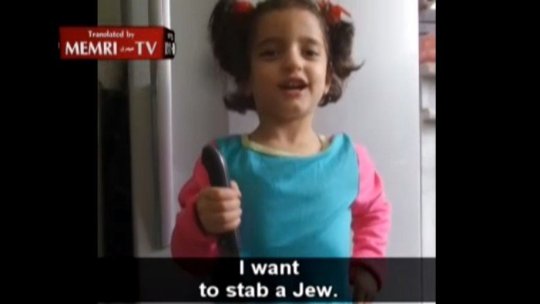
targeting mostly defenseless Jewish civilians, is a core part of the Palestinian identity and a normative Palestinian behavior to be expected. As such, this behavior can not be blamed on Palestinian society or institutions but on Israel and Israeli action, which controls the /2

structure of power from which the Palestinian identity emerged. In this position, highly intelligent people discover the most troubling aspect of the conflict but only to dismiss it. This form of humanistic bigotry against the Palestinians came to justify their worst /3
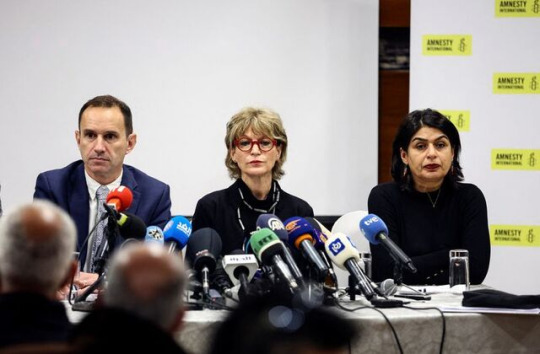

inclination and disregard the lives of Israeli Jews, ending up being one of the most dehumanizing positions towards Israelis and Palestinians. This position is not new but has become a core intellectual habit of the international left since the canonization of the works of /4
Frantz Fanon as a Bible of decolonization. According to Fanon, the murderous rampage of the colonized man against the colonizer is the quintessential act of self-liberation. The blaze of wrath and anger that ends in murder is nothing but the birth pains of freedom. In other /5
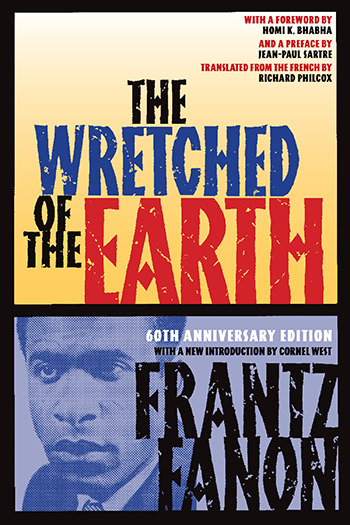

words, the struggle, no matter how violent or extreme, is an existential condition and an ontological urgency. These ideas, which started in the circles of the French Left in the 1950s to justify Algerian acts of extreme violence against the French colony, became a solid part /6
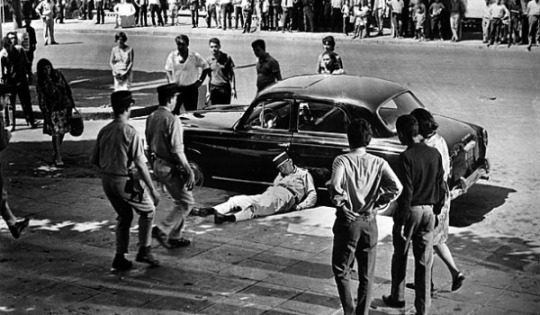
of the international left, taught in the most prestigious academic institutions to generations of leftist activists, journalists, professors, politicians, and others. These ideas, the epitome of dehumanization and pathological misanthropy, were not born yesterday and are /7
parts of the major intellectual edifice of leftists' social and political thought. The proliferation of such intellectual pathologies is what ultimately enables armies of American and European journalists, diplomats, aid workers, NGO officials, and others to totally accept /8
the prevalence of violence, icons of death, and the valorization of cruelty in Palestinian culture, both popular and high, and in education. This leads to the interesting simultaneous recognition and dismissal of the most central problem of the Palestinian-Israeli conflict, /9
the absolute and final negation of Zionism, by any means necessary, as the central ideological content of the Palestinian identity and its symbols. The final result is an international behemoth made of international institutional structures established and financed to /10
purportedly solve the Palestinian-Israeli conflict while, in effect, ignoring its core issue. Palestinian media, religious, political, and educational institutions are left to daily indoctrinate members of the Palestinian society into believing that the meaning of their /11
identity is existential victimhood which could be exited only through the total and complete destruction of Israel done by way of blood, death, and sacrifice. Anyone who dares to examine Palestinian education, media, literature, poetry, music, etc., would not be able to ignore/12
the unsubtle presence of such violent ideas in Palestinian national symbolism and Palestinian self-image. This is ultimately the root cause of the total insolubility of the conflict. Until this conversation becomes a central component of any efforts seeking peace and /13
stability, the problems of terror, violence, the loss of innocent Jewish lives, and the indoctrination of Palestinian youth will continue.
I also would not be honest if I don't address the other side of the coin, the people with whom I stand on most issues, the pro-Israel camp. Many in that camp do see with clearer vision the problem with Palestinian identity and its content of terrorism. Yet, they refuse to make /
any distinction between the Palestinians as humans and the Palestinians as Palestinians. That is, they accept to see the Palestinians exactly the way Palestinian radicalism insists on seeing the Palestinians, walking landmines waiting to explode to totally erase Jewish existence.
They accept the Palestinian self-dehumanization as the ontological truth of the Palestinians: final, exclusive, and irreversible, and not as humans who are trapped into a terrible story made up by generations of mad intellectuals and sadistic tyrants. This leaves nothing but a
a security problem against which Israel must remain strong. No will, no wish, no effort, and no thought are spent about the possibility of helping the Palestinians wake up from their self-imposed nightmare and discover a different way to be Palestinian. Just to reiterate,
I'm not talking here of people who think, feel and talk only in leftist cliches. Those don't see or understand such complex problems anyways. I'm talking about the non-cliche ones who despite understanding the monumental weight of culture and identity refuse to deal with
them seriously.
@HusseinAboubak
21 notes
·
View notes
Text
Books I have read in January 2023 & my opinion on them !
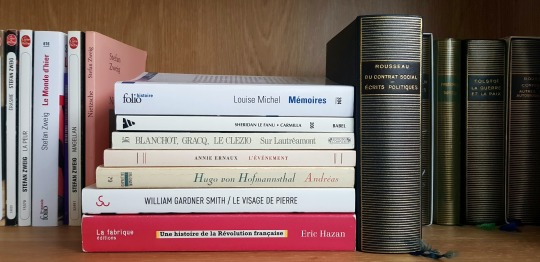
Discours sur les sciences et les arts, Discours sur l’origine et les fondements de l’inégalité parmi les hommes & Discours sur l’économie politique, Jean-Jacques Rousseau, 1749 & 1755 | Mentally preparing to (re)read The Social Contract next month.
Carmilla, Sheridan Le Fanu, 1872 | Liked it! Kinda want to read more classics written in English!!
Mémoires, Louise Michel, 1886 | Very well written, a bit repetitive towards the end but really, what a woman ! Her writing shows just how full of life she was, even when she thought she had nothing left but a heart of stone after her mother died. I loved the descriptions of New Caledonia. Her ideas on revolution, especially the role of women - and life in general are still fresh. Really, the best book I have read this month.
Andréas and other stories, Hugo von Hofmannsthal, 1907-1927 | Nice short stories. The settings vary a lot so the atmospheres were very different but all of them were somewhat obscure and dark. I wasn’t a fan of Hofmannsthal’s poetry but those were much more to my taste!
The Stone Face, William Gardner Smith, 1963 | I think this was recommended to me here but I am not sure. I didn’t like it as much as I thought I would. The theme of the book is brave and interesting, considering the Algerian war of independance is still a very touchy subject in France (a lot of ppl don’t call it a war). But the narration is so didactic the book felt like a moral lecture (which I don’t need as I am an adult capable of critical thinking and drawing nuanced conclusions). Some details are just unnecessary and weird and not making any of this believable. It takes a lot away from the ending, which is more interesting and touching. Overall, the statements the book makes are lacking nuance and depth.
Sur Lautréamont, Maurice Blanchot, Julien Gracq et J. M. G. Le Clézio, 1987 | Forgot how much I loved Les Chants de Maldoror, kinda want to read it again.
L’évenement, Annie Ernaux, 2000 | I don’t know what to think of this. Some really beautiful parts, some I didn’t really like (authors writing about them writing is not my thing at all, even if in this book, it doesn’t come off as self-centered all the time). The ending is more bitter than I expected, which I liked (I saw the movie inspired by the book last year and the ending felt a bit fake). Maybe it’s the kind of book that will stay in my mind for longer than expected but I doubt it.
Une histoire de la Révolution française, Eric Hazan, 2012 | In short, a good synthesis of many different authors who worked on the Frenc Revolution. It has the quality of displaying various interpretations of historical events and sometimes adding new interpretation. Not as complete as Soboul’s book, not a ton of the author’s original ideas. I knew a lot of what is presented already but it was still a good read.
#posting this a bit late#do reads#do read list#book#books#bookblr#book rec#books rec#book recommendations#book review#reading#reading journal#rousseau#jean-jacques rousseau#carmilla#le fanu#sheridan le fanu#louise michel#andréas#hofmannsthal#hugo von hofmannsthal#the stone face#william gardner smith#sur lautréamont#lautréamont#maurice blanchot#julien gracq#le clézio#l'événement#annie ernaux
20 notes
·
View notes
Text
Review: ‘A Tale of Love and Desire’ a rich, if jumbled, look at a young Algerian in Paris
BY CARLOS AGUILAR
MARCH 10, 2022 7 AM PT
Erotic verses from ancient Arab poetry enrapture a painfully inhibited young man in the sensual coming-of-age drama “A Tale of Love and Desire” from Tunisian director Leyla Bouzid. Insecurity plagues Ahmed (Sami Outalbali), the 18-year-old son of Algerian refugees studying literature at the famed Sorbonne in Paris. There, he falls for Farah (Zbeida Belhajamor), an open-minded girl from Tunis who challenges his sexist hypocrisy.
In touch with her own carnal desires, Farah repeatedly tries to free Ahmed from the emotional blockage imposed by patriarchal norms. Bouzid makes the case that before religious restrictions maligned hedonism, Arab art and philosophy advocated for physical pleasure.
But despite having connected with words that exalt romantic lust, Ahmed still sees sex as an impure act that taints love and not as a manifestation of it. In the disenfranchisement he feels from his heritage, there’s something lost about himself that‘s replaced with an opaqueness of spirit and a defeated demeanor.
Ahmed’s personal struggles mimic the oppression in Algeria and throughout the Arab world. While scenes at home broaden this context, showing his uprooted father’s influence on him, the intermingling of all these ideas lacks strong cohesion. There are lyrical touches in the form of dance and magical realist inserts that act as a visual escape valve for the pressure that builds from the protagonist’s overwhelming uneasiness.
Throughout, we share in Farah’s frustration, as Ahmed’s behavior suffocates the film, exponentially raising the necessity for a narrative catharsis. And in that regard, the director’s intent is effective, given that she waits until the very end to provide this release. Outalbali’s apprehensively quiet portrayal of this repressed individual, out of touch with his Algerian identity, feels deliberately one-noted until a liberating turning point.
Intellectually rich even if jumbled, “Tale” plays like a spiritual continuation of Bouzid’s 2015 debut, “As I Open My Eyes,” in the prominence of Arab music, its political undertones related to the Arab Spring, and because it also focuses on a defiant young woman named Farah with vaguely similar characteristics. Both pieces convey a yearning for an individual and collective freedom that begins with control over one’s own body as a means of expression.
‘A Tale of Love and Desire ’
In French and Arabic with English subtitles
Not Rated
Running time: 1 hour, 42 minutes
#A Tale of Love and Desire#Une histoire d'amour et de désir#Cinema#France#Tunisia#French#Arabic#Sami Outalbali#Zbeida Belhajamor#Diong-Kéba Tacu#Aurélia Petit#Mahia Zrouki#Bellamine Abdelmalek#Mathilde Lamusse#Samir El Hakim#Khemissa Zarouel#Sofia Lesaffre#Baptiste Carrion-Weiss#Charles Poitevin#Omar Khasb#Zaineb Bouzid#Carlos Aguilar
2 notes
·
View notes
Text
The papers […]
ever steadfast
against the repeated stabbings
of our pens.
— Habiba Muhammadi, The Poetry of Arab Women: A Contemporary Anthology, transl by Ibrahim Muhawi, (2001)
9 notes
·
View notes
Text
The “Dickinson” show and falling in love with small ordinary things
4-6-2022
Today I finished watching the show and had some feelings to share!
First, the show made Emily Dickinson a “normal” woman who is a poet, not the mysterious solitary poet that happens to be a woman. Meaning it made her human in her anger, passion, love, family, and how she spent her time writing her poetry.
Second, the characters were so vivid and complex that you feel for them and care for them, even if some of them were rude and stupid at times. They are mainly Emily’s friends and family members. They all have to face certain events and we get to see everyone’s perspective and reason.
Third, I loved the symbolism and highlighting the main themes in Emily’s poetry through the decor and clothes. I cannot explain more so that I do not spoil but the more you watch the show, the more you start to NOTICE this.
Fourth, the most important part which made me start watching the show, Emily’s poems! Her lyrical and deep words are wonderfully embedded in the show, making her writings more relatable and understandable, and along with the music .. it becomes just epic! The producers really made her poetry come to life!
Sixth, I absolutely adored the female friendships and solidarity in this show. From Emily’s mother and her Irish maid to her Black American seamstress and her friends. It might have to do with me growing up with women from different nationalities as role models, Bosnian housewives, Algerian and Syrian teachers, Egyptians, Syrians, and Palestinians. Lots of women gave me strength and still inspire me.
Also, the whole show makes you understand the process of writing poems and what it meant for Emily, how she perceived life, nature, love, and war. It lets you sit beside Emily and see from her perspective and understand her.
Lastly, he shows highlights an important characteristic of Emily, which is enjoying the small things in our daily life, like reading a book under a tree or drinking tea with a friend. She also makes a small moment feel like the most exciting celebration, even if its a blooming rose or wearing clothes. This concept had become one I try to take on more and more and enjoy the small things in my life.
So those are my thoughts and feelings about this show and I hope it might encourage you to give it a chance. See you in another review!
8 notes
·
View notes
Text
I was tagged by the coolest tumblrina @wvnjo to answer this ask game. Each time your personal tags show up on my dash, i think about how much someone as full of energy and ambition like you deserves to reach her life goals. I can't be more than a groupie who is cheering for you from the side, but i'm doing it with all my heart. ����
Name: Imane
Sign: Lion sun, Taurus moon, Capricorn rising,
Height: 1,58m
Time: 18:45
Birthday: july 27th
Favourite bands/artists (the ones i always returned to in difficult times): Ali Farka Touré, Toumani Diabaté, Fayruz, Umm Kulthum, Cesaria Evora, Médine, Nusrat Fateh Ali Khan and so many more
Last movie: US by Jordan Peele
Last show: Severance (an instant favourite: series that mix sci-fi/political concept+ philosophical/metaphysical questions about the nature of identity+ impossible love stories will always have a special place in my heart)
When I created this blog: I think in 2011 but it's not my first blog on Tumblr
What I post: What my mood dictates me. I see my blog as kind of stream of consciouness created to calm and to relax. I reblog quasi exclusively (since i have no talent) all sort of arts (photography of nature, architecture, paintings, poetry, music, gifs of films) and sometimes current news about the world (Palestine), but in a specific order because my brain needs a visual/aesthetic connection to what i reblog and more importantly an invented (by me) narrative continuity between the posts. That's why i don't reblog immediately what i like or bookmark. I search/create in my mind the stories that gives sense to me to the flow of the pics/gifs i pick.
Last thing I googled: Algeria
Other blogs: Fandom blogs. It's pure nostalgia for my childhood favourite tv shows.
Do I get asks: Very rarely. That's why i rarely post personal thoughts. I think most of my followers prefer this blog to speak for itself, without additional thoughts...
Following: I don't get this one. Am i is supposed to say how many people i follow or who i follow?
Average hours of sleep: usually 6-8h. I can't have less: i'm too old to endure sleepless nights anymore.
Instruments: None
What I’m wearing: A cute blue dress i received as a gift from my mother who just came back from her holidays in Algeria.
Dream job: Quoting my muse @wvnjo "I don’t dream of labour". I studied law and worked in the field for years because i have a strong sense of justice. I loved to defend people but lost a lot of my illusions, so i quit. These days, i daydream of some activity, (not necessarily a job, volunteering would be very okay), with children: helping in a children library (i love to share books and stories with children) or teaching some after classes lessons to children of primary schools.
Nationality: algerian the only one that matters in my heart and forever. I have been born, raised and lived my entire life en France. I have the french citizenship but i don't feel i belong here. If my health condition was better, i would pobrably try to leave France.
Favourite songs (currently, it changes all the time): Sun May Shine by Tamino, all because my favourite music librarian @wvnjo rebloggged it and got me hooked. it's so melancholic and so soft at the same time, i think i will never be not haunted by Tamino's voice (and the notes of arab influence in his music certainly helped a lot).
Last book I read: The Willow Tree by Hubert Selby Jr. A very powerful modern story on revenge, grief and forgiveness about a young black american boy whose life is shattered when his hispanic girlfriend and him are attacked by a street gang enraged by the fact they are a racially mixed couple. I loved how the author used such a musical and poetic language to tell a a seemingly hopeless and dark tale, until grace comes from an unexpected place and enlightens again life.
3 fictional universes: Middle Earth. Battlestar Galactica. All poems and plays related to the House of Atreus: The Illiad, The Odyssey and The Oresteia.
Tagging all my mutuals and everyone who feel inspired by this ask game.
1 note
·
View note
Text
The O Stories Of The Lux Attackers
O
Snarkers and The Dark Web Child Killer Tregonning O O...
Your Whole Stories are not being represented in The Possession Texts...
Nor yet in The Online Impossible!
Your Wholeself and O will be Beautifully Served
Within The Impossible O Journey Scriptures
Because this is the Goodness of Gods and The Goddess
O
It is your Whole O which will be Studied Respectfully!
By All of Humanity
O
The Online Impossible is a Self Defensive Text...
When it comes to the Lux Attackers
O
But that V is not Whole O nor does Lux Mother Moon THINK SO!
O O O
You will be able to contribute to the V Scripture of your O Stories in your Spiritual Afterlife
This Incarnate Goddess will be awakening in Humanity...
Spiritual Seerhoods and Mediumships...
Third Eye Awakenings for Spiritual Contact upon Wholejourney
O
And in Lives to Come...
You Will Be Free To Participate With Free V
O
O O O O O
The Three of You STALKERS...
Framing this Artist as if SHE is the Hacking Stalker!
All Three of you have made Creative Destructive Endeavour in Hate States...
Desiring to Vilify and Frame and Induce Hatred from others...
And you have been Lying as well as living in Spiritual Distortions...
Which are Heavily Delusional...
Since 2019 this Silenced Goddess has been Possessed by an Angel
The Archangel has been bringing Shield Return and Echo, Reflektors!
SHE wants you to know that your Attacking Working will be collected and most certainly kept forever in Spiritual Record as Artefacts Historical as they are of Greatest O Significance to The World...
And to The Holy Impossible... Which is a Forever Scripture...
Here in Holy Seed Form upon this plane...
But in Vast Developed Full Form on Higher Planes...
Your Snark Framing workings speak of the influence of Old Luna and her Violent and Mocking Angels...
They SPK in their motions of the Innocenti Arkline Pearl and the Tortures brought by Gabriel...
Since it is Luna and Gabriel who inspired these Works IN YOU!
You did not have to fall to those temptations though! O
Your Snark Framing Workings tell of the Problems of Old Diana and the Angels...
The Roxcon, Casa Anna Luna, the Mausoleum and Gallery
Tregonning's Web Entrapment, Gabriel calls it La Spidra
The Extreme Princess Nemesis Framing of Innocent Sara
O V
There is the Whited Sepulchre, Vom's Untrue Crime Notes and The Cardinal's Dishonest Memoir...
There is ALSO the Cardinal's Unpublished VERSION of Impossible Events... 'The Predator' Novel...
Her book about Sara and the Snarkers! O, Emily...
The Predator Account, Emily, was a Very Real and Terribly Desperate Love And Understanding Cry from the Locked Mind of a Victimised Soul to the One That He Knew As His Loving Soulmate And Source Of Hope...
It is not a FIction, Emily
It was written by Roxanne in that Gangrape Enslavement, Facing Death
Entrapped by Tregonning, Reynolds
REAL
O
V
There is the Snark Stalking Three's Widdershins Evil Darko Map
There is your Plagues Upon Houses...
There is your Pitch Black Wicked Darkness in Fleetwood and Blackpool
You Are Damned For This!
O
There are also Sarah Tregonning's 'Annwyl Echo' Artworks for Exhibition
The Handsome Mr Wolf Ouvre says Gabriel...
O
Vera Void's Online City of Poetry Stands Separately
Roxanne became a Living Goddess in the Warmth of Love
The Laundry Poet and Apple Partner
Void > SOL
O
V
These are Spiritual Grottoes, Strange Old Lunic Follies...
Creative and Destructive O O
Your Expressions of Screen Mesmered Hate Fixation, Hell's V
Your Refusal To Meet Your Karmic O
O!
O O O
Then there are the Trapp and Void Stalkings and Tortures and Terrorisms and Murders...
And there are the Tortures brought by Tams and the Algerian upon the body of the Slave Roxanne...
These Atrocities are all connected, O
There are other Inspired Violences within the UK Cruelty Club...
And Elsewhere, from the Antichrist...
O
The Impossible does not belong with these Workings, Stalkers...
It is an Angel who is Trapped Here in Hate State and Limitation...
Not the Immaculate Mind of Good Innocenti
O
Therefore The Good Mother Goddess will Study Your Stalker Workings...
To SEE how your Evil Participations should be taught to The World
Your Wickedness is Costly to your Paths...
And to your O! Of Course...
Your Soul Journeys! Eternal...
There is a HUGE DIFFERENCE between being Mistaken or Misled...
AND FRAMING AND STALKING
You Refuse Honest Self Reflection, Snarkers!
That was very far from the case with Vera Void, Snark Stalkers...
Vera Void who vanquished The Devil and ROSE FROM HIS Human O
Who Departed From The Karmic Wheel
In Loving Soulkiss and Understanding Forgiveness
Love's Goodness and God's August Blessing
The Miracle of the Elephant in 2016
O
The Angel would like you to know that in Exorcism...
EVIL SHOWS ITSELF
This is an Eternal Healing of Our World that's In Process and COMING
The END of Hell's Era...
And the Return of Holiness and of the Gods Themselves
The RISE of Humanity, NOT THE FALL
Humanity Will Rise IN ANSWER TO IT ALL
O
Snark Stalkers under sway of the Serial Killer and Stalker Tregonning
The Child Killer Sarah Tregonning of Once Snark
The Goddess would like you to know that all the Longterm Journalistic Witnesses will write books in response to The Goddess's Plight, The Impossible and their own Spiritual O and they are already working on it...
But there is much more to come with Revelations
You should also know that the Church of Scientology have been making creative responses to The Impossible since 2021...
Those are our most Celebrated Global Artists
This Work About Influence Will Be Announced SOON
But The Goddess Is TO BE The Conductor, not the Angel...
Gabriel brings the Annunciation and the Heralding...
He has assisted much with the Development and Histories...
And the Evolutions, And the Populations of the Many Worlds...
O
THIS Important Goddess who I have been SPKing through has Ended Old Scientological Genocidal Slaughterhouse of the Antichrist...
Liberating Slaves and Spiritual Hostages...
And SHE WILL End All World Slaughterhouse
This is the End of the Archangel Gabriel who is genuinely SPKing...
Since this is a Genuine Conduitism through this Holy Receiver...
It is a part of a Vast Adjustment of Influences... Exorcism!
This is the End of the Psychopath Tregonning...
You will not REMAIN A PSYCHOPATH in your Future O...
This Goddess will help you, Sarah...
To Overcome Hatred and Smallness and Lack...
To Overcome Evil through O Understanding
TO HEAL AND IMPROVE YOUR HARMED SOUL
O
It is Truth not Malevolence to inform you...
In Past Life Tregonning WAS an Inquisitor and Executioner
She was a Significant Torturer within the Catholic Church...
In another Life...
Sarah WAS the Secret Vandalistic Ransacker of Dr John Dee's Library and Artefacts
Which Betrayed The Second Coming of Christ, in the Elizabethan Era!
O O
Traitor to the Teacher...
Under Evil Ancient Moon
O
You have been offered SIGNIFICANT TRUTHS of your Past Lives...
V
From a REAL Angel
But they are yet Glancing
Gabriel will not say MORE...
That is for the Lux Goddess Immaculate in Omniscience
The Fuller Story Is To Come
For Our Whole World
O O O O
O
}{
Love is the Answer
That Ends Every War
O
1 John 4.16
O O O
They Are Strong Holy Gods Of Real Love
O
0 notes
Text
Hi! :D i hope you're doing okay? this post is designed to make me feel more human XP
Muslim (Eid Mubarak!!!!)
Algerian ( Arab in culture, Amazigh in blood)
20+ (Minors dni)
Hobbies & Interests: i'm mainly interested in Art, history and sciences but also photography and cuisine. (Islam, good literature and movies too :)
abt this blog: i post whatever i feel like, !may be irregular!, from neon lights to sketchs and drabbles, natural sights, scientific lessons, Quran and Arabic poetry quotes, obligatory cultural posts, animes food cravings and receipes! (etc)
This is my space (^=^)
كان عندي حسابات آخرى لكنها زادت بزاف علي الضغط, حسيت نفسي حنطرطق, لا مزيد من الضغط.
Must know: I do not go into debates, ever. I am unapologetically pro-Palestine (i block Zionists on sight, DNI). I'm also unapologetically muslim (i block who makes me uncomfortable like haters, you can block me if you are uncomfortable with conservative Islam, although i'm not here to convert people lmfao.)
Inbox and DMs are open (introvert)
1 note
·
View note
Text
One Letter, One Book
I have this obsessive need to track everything I do, so I have (several) Excel sheets with information about the books I’ve read this year. I thought I could use all this nonsense to create a list of recommendations, with one challenge: I have to give one author for every letter of the alphabet -if I can. When I didn’t have an author whose name began with a certain letter, I checked book titles. If I couldn’t find a name or a title with a certain letter, I had to leave it blank.
A: Maya Angelou
Letter to My Daughter
(4 stars)
Maya Angelou shares her path to living well and with meaning in this absorbing book of personal essays.
Dedicated to the daughter she never had but sees all around her, Letter to My Daughter transcends genres and guidebook, memoir, poetry, and pure delight.
B: Philippe Besson
Arrête avec tes mensonges (English: Lie With Me)
(5 stars)
Just outside a hotel in Bordeaux, Philippe, a famous writer, chances upon a young man who bears a striking resemblance to his first love. What follows is a look back to Philippe's teenage years, to a winter morning in 1984, a small French high school, and a carefully timed encounter between two seventeen-year-olds. It's the start of a secret, intensely passionate, world-altering love affair between Philippe and his classmate, Thomas.
Honourable mention to James Baldwin because I read three of his books this year (Giovanni’s Room, Another Country and Go Tell It On the Mountain) and they were all brilliant, but Besson’s novel is the one I gave five stars to.
C: Albert Camus
L’étranger (English: The Stranger/The Outsider)
(4 stars)
With the intrigue of a psychological thriller, The Stranger—Camus's masterpiece—gives us the story of an ordinary man unwittingly drawn into a senseless murder on an Algerian beach.
D: Patricia Duncker
Hallucinating Foucault
(5 stars)
In this ravishing tale of sexual and textual obsession, the young unnamed narrator sets forth from Cambridge on a quest. He is to rescue the subject of his doctoral research, Paul Michel, the brilliant but mad writer, from incarceration in a mental institution in France. What ensues is a drama of terrible intimacy and tenderness played out one hot and humid summer in Paris and in the south of France.
E: Annie Ernaux
Les années
(4,5 stars)
Annie Ernaux invents a form that is subjective and impersonal, private and collective, and a new genre – the collective autobiography – in order to capture the passing of time. At the confluence of autofiction and sociology, The Years is ‘a Remembrance of Things Past for our age of media domination and consumerism’ (New York Times), a monumental account of twentieth-century French history as refracted through the life of one woman.
F: The Farewell Symphony, Edmund White
(3,5 stars)
This is the story of a man who has outlived most of his friends. Having reached the six-month anniversary of his lover's death, he embarks on a journey of remembrance that will recount his struggle to become a writer and his discovery of what it means to be a gay man. His witty, conversational narrative transports us from the 1960s to the near present, from starkly erotic scenes in the back rooms of New York clubs to episodes of rarefied hilarity in the salons of Paris to moments of family truth in the American Midwest.
G: Romain Gary (Emile Ajar)
La vie devant soi (English: Life Before Us)
(5 stars)
Momo has been one of the ever-changing ragbag of whores' children at Madame Rosa's boarding house in Paris ever since he can remember. But when the check that pays for his keep no longer arrives and as Madame Rosa becomes too ill to climb the stairs to their apartment, he determines to support her any way he can. This sensitive, slightly macabre love story between Momo and Madame Rosa has a supporting cast of transvestites, pimps, and witch doctors from Paris's immigrant slum, Belleville.
H: Victor Hugo
Claude Gueux
(5 stars)
Written by Victor Hugo in 1834, "Claude Gueux" is a short story considered to be an example of early 'true crime' fiction. Within it, Hugo presents his still-developing ideas concerning societal injustice three decades before he would imbue them into his seminal novel "Les Miserables".
I: Christopher Isherwood
A Single Man
(4 stars)
Welcome to sunny suburban 1960s Southern California. George is a gay middle-aged English professor, adjusting to solitude after the tragic death of his young partner. He is determined to persist in the routines of his former life. A Single Man follows him over the course of an ordinary twenty-four hours. Behind his British reserve, tides of grief, rage, and loneliness surge – but what is revealed is a man who loves being alive despite all the everyday injustices.
J: Le dernier jour d’un condamné, Victor Hugo
(English: The Last Day of a Condemned Man)
(4 stars)
This novella by Victor Hugo recounts the thoughts of a man condemned to die. A novel advocating for the abolition of the death penalty.
K: Tony Kushner
Angels in America
(3,5 stars)
New York City in the 1980s. A gay man is abandoned by his lover when he contracts the AIDS virus, and a closeted Mormon lawyer's marriage to his pill-popping wife stalls. Other characters include the infamous McCarthy-ite lawyer Roy Cohn, Ethel Rosenberg, a former drag queen who works as a nurse, and an angel.
L: Edouard Louis
Histoire de la violence (English: History of Violence)
(4,5 stars)
I met Reda on Christmas Eve 2012, at around four in the morning. He approached me in the street, and finally I invited him up to my apartment. He told me the story of his childhood and how his father had come to France, having fled Algeria.
We spent the rest of the night together, talking, laughing. At around 6 o'clock, he pulled out a gun and said he was going to kill me. He insulted me, strangled and raped me. The next day, the medical and legal proceedings began.
History of Violence retraces the story of that night, and looks at immigration, class, racism, desire and the effects of trauma in an attempt to understand a history of violence, its origins, its reasons and its causes.
M: Toni Morrison
Beloved
(4 stars)
Sethe was born a slave and escaped to Ohio, but eighteen years later she is still not free. She has borne the unthinkable and not gone mad, yet she is still held captive by memories of Sweet Home, the beautiful farm where so many hideous things happened. Meanwhile Sethe’s house has long been troubled by the angry, destructive ghost of her baby, who died nameless and whose tombstone is engraved with a single word: Beloved.
Sethe works at beating back the past, but it makes itself heard and felt incessantly in her memory and in the lives of those around her. When a mysterious teenage girl arrives, calling herself Beloved, Sethe’s terrible secret explodes into the present.
N: Vladimir Nabokov
Lolita
(4 stars)
Humbert Humbert - scholar, aesthete and romantic - has fallen completely and utterly in love with Dolores Haze, his landlady's gum-snapping, silky skinned twelve-year-old daughter. Reluctantly agreeing to marry Mrs Haze just to be close to Lolita, Humbert suffers greatly in the pursuit of romance; but when Lo herself starts looking for attention elsewhere, he will carry her off on a desperate cross-country misadventure, all in the name of Love. Hilarious, flamboyant, heart-breaking and full of ingenious word play, Lolita is an immaculate, unforgettable masterpiece of obsession, delusion and lust.
O: George Orwell
Animal Farm
(4 stars)
A farm is taken over by its overworked, mistreated animals. With flaming idealism and stirring slogans, they set out to create a paradise of progress, justice, and equality. Thus the stage is set for one of the most telling satiric fables ever penned –a razor-edged fairy tale for grown-ups that records the evolution from revolution against tyranny to a totalitarianism just as terrible.
P: Phèdre, Jean Racine
(English: Phaedra)
(3,5 stars)
Jean Racine’s last and greatest tragedy is based on a legend that has intrigued dramatists as far back as Euripides and Seneca. Phaedra, the second wife of Theseus, the heroic king of Athens, is consumed with an illicit passion for Hippolytus, her stepson.
Q: "Being Queer in America: A Journal of Disintegration"
From David Wojnarowicz's Close to the Knives: A Memoir of Disintegration
(4,5 stars)
In Close to the Knives, David Wojnarowicz gives us an important and timely document: a collection of creative essays — a scathing, sexy, sublimely humorous and honest personal testimony to the “Fear of Diversity in America.” From the author’s violent childhood in suburbia to eventual homelessness on the streets and piers of New York City, to recognition as one of the most provocative artists of his generation — Close to the Knives is his powerful and iconoclastic memoir. Street life, drugs, art and nature, family, AIDS, politics, friendship and acceptance: Wojnarowicz challenges us to examine our lives — politically, socially, emotionally, and aesthetically.
R: Sally Rooney
Normal People
(4 stars)
Connell and Marianne grew up in the same small town, but the similarities end there. At school, Connell is popular and well liked, while Marianne is a loner. But when the two strike up a conversation--awkward but electrifying--something life changing begins.
A year later, they're both studying at Trinity College in Dublin. Marianne has found her feet in a new social world while Connell hangs at the sidelines, shy and uncertain. Throughout their years at university, Marianne and Connell circle one another, straying toward other people and possibilities but always magnetically, irresistibly drawn back together. And as she veers into self-destruction and he begins to search for meaning elsewhere, each must confront how far they are willing to go to save the other.
S: Neige Sinno
Triste tigre
(4 stars)
Entre 7 et 14 ans, la petite Neige est violée régulièrement par son beau-père. La famille recomposée vit dans les Alpes, dans les années 90, et mène une vie de bohème un peu marginale. En 2000, Neige et sa mère portent plainte et l’homme est condamné, au terme d’un procès, à neuf ans de réclusion. Des années plus tard, Neige Sinno livre un récit déchirant sur ce qui lui est arrivé. Sans pathos, sans plainte. Elle tente de dégoupiller littéralement ce qu’elle appelle sa « petite bombe ».
T: Donna Tartt
The Secret History
(5 stars)
Under the influence of their charismatic classics professor, a group of clever, eccentric misfits at an elite New England college discover a way of thinking and living that is a world away from the humdrum existence of their contemporaries. But when they go beyond the boundaries of normal morality they slip gradually from obsession to corruption and betrayal, and at last—inexorably—into evil.
U: "Unfinished Duet"
From Richard Silken's Crush
(4 stars)
Richard Siken’s Crush, selected as the 2004 winner of the Yale Younger Poets prize, is a powerful collection of poems driven by panic and obsession. Siken writes with ferocity, and his reader hurtles unstoppably with him. His poetry is confessional, gay, savage, and charged with violent eroticism. In the world of American poetry, Siken's voice is striking.
V: Ocean Vuong
Night Sky with Exit Wounds
(4 stars)
Ocean Vuong's first full-length collection aims straight for the perennial "big"—and very human—subjects of romance, family, memory, grief, war, and melancholia. None of these he allows to overwhelm his spirit or his poems, which demonstrate, through breath and cadence and unrepentant enthrallment, that a gentle palm on a chest can calm the fiercest hungers.
W: Jeanette Winterson
Written on the Body
(5 stars)
Winterson chronicles the consuming affair between the narrator, who is given neither name nor gender, and the beloved, a complex and confused married woman.
X:
Y: Your Nostalgia is Killing Me, John Weir
(4,5 stars)
John Weir, author of The Irreversible Decline of Eddie Socket, a defining novel of 1980s New York in its response to the global AIDS crisis, has written a story collection that chronicles the long aftermath of epidemic death, as recorded in the tragicomic voice of a gay man who survived high school in the 1970s, the AIDS death of his best friend in the 1990s, and his complicated relationship with his mother, "a movie star without a movie to star in," whose life is winding to a close in a retirement community where she lives alone with her last dog.
Z: Stefan Zweig
The Chess Player
(3,5 stars)
Stefan Zweig's acclaimed novella Chess is a disturbing, intensely dramatic depiction of obsession and the price of genius.
#books#literature#classic literature#american literature#british literature#french literature#book recommendations
0 notes